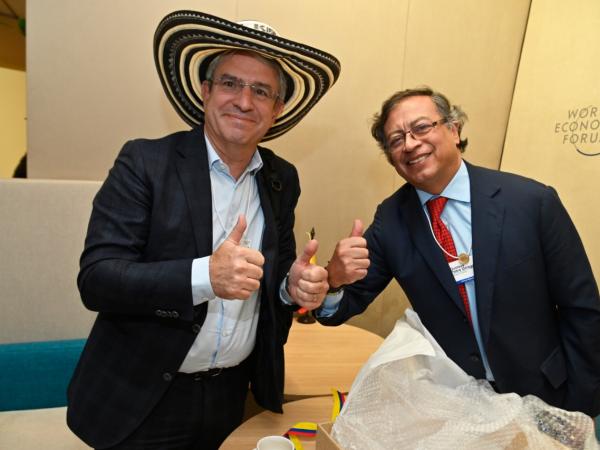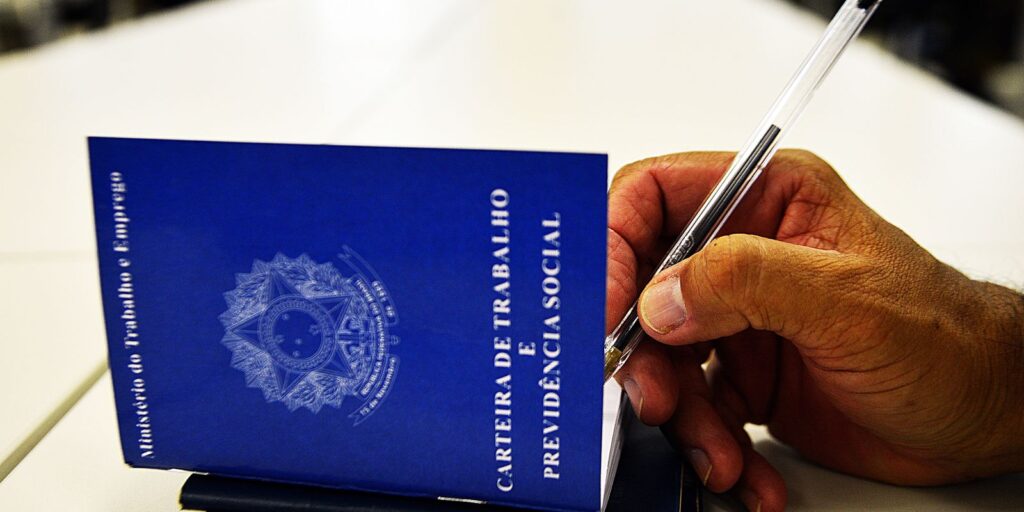During his tour in Davos (Switzerland), within the framework of the World Economic Forum agenda, President Gustavo Petro announced the creation of the first Innovation Center promoted by Colombia, for the promotion of employment and youth entrepreneurship for Latin Americathrough guidance and free virtual training, which will benefit millions of young people in the Pacific Alliance (Chile, Mexico, Peru and Colombia).
(‘Decarbonized capitalism’: Petro’s final proposal in Davos).
According to the president, The initiative will be carried out in partnership with the multinational Nestlé and its objective is to promote the development and promotion of entrepreneurship and agro-entrepreneurship in the region. in order to strengthen agricultural productivity and competitiveness for the productive transformation of Colombia, making young peasants protagonists of the construction of agricultural territories with more opportunities for progress and in peace.
“We are committed to adapting our innovations to local trends and the regional context, including taste and nutritional needs. That is why it is so important to have an R&D team driving innovation in Latin America and working closely with the ecosystem of regional innovation. We will be better able to respond to trends, needs and challenges more quickly and efficiently”said Stefan Palzer, Nestlé’s chief technology officer, after President Petro’s announcement.
According to the National Department of Statistics (Dane), Colombian peasants are between 41 and 64 years of age, which infers the imperative need to promote generational renewal in Colombia, creating greater training opportunities and access to credit and financing for farmers. young peasants who can make the land a productive resource with great capacity for the economic future of the country.
With this Center, Colombia hopes to reach thousands of young people who see in the field an option to generate resources and opportunities for the well-being and collective progress of their communities.
(The plan proposed by Petro to achieve investment in clean energy).
The Innovation Center will be available through a virtual platform, in which young people in the region will be able to access free content and virtual training developed by experts from Colombia, Mexico, Chile and Peru. Likewise, a network of connections will be launched to capitalize on innovation initiatives led by young people and supported by strategic allies from the four countries.
The alliance entered into by the Ministry of Foreign Affairs with Nestlé is part of the multinational’s Shared Value Creation strategy, which becomes tangible through its Youth Initiative, a program that seeks to strengthen the generation of employment opportunities to serve the challenges of the region in terms of youth unemployment.
“We have a commitment to generating opportunities for thousands of young people in Latin America. For this reason, we fully trust in the construction of public-private alliances that allow us to advance in our ambition to help 10 million young people in the world have access to economic opportunities by 2030. We celebrate the openness and disposition of the Colombian Government at the head of the president Gustavo Petro to promote this initiative that will allow thousands of young people in the region to access better opportunities through a training environment that promotes innovation as a key to generating opportunities”said Laurent Freixe, Vice President of Nestlé for Latin America.
Through the Reviving Origins program, which was born in 2019, Nespresso seeks to impact coffee communities that have been affected by adverse social or climatic conditions so that they rebuild their tradition around high-quality coffee.
The initiative started in Colombia and has spread to Puerto Rico, Zimbabwe, Uganda and, this year, the Democratic Republic of the Congo.
(Petro calls for climate and trade agreements.)
In the Colombian case, the ‘Esperanza de Colombia’ coffee is the result of Nespresso’s long-term commitment to the quality and sustainability of Colombian coffee farming.
This goes hand in hand with the AAA Sustainable Quality Program, which has allowed more than 30,000 coffee growers and coffee farms in the departments of Cauca, Nariño, Antioquia and Caldas, Santander, Cundinamarca and Caquetá to access various supports for their work.
For example, more than 150 agronomists dedicated to coffee production receive advice and support for the production of high-quality coffee under sustainable standards and, by 2020, the program delivered 135 pulpers, 141 fermentation tanks, and nearly 80 dryers. solar to improve the infrastructure of the farms.
For Nespresso, this is a department with a coffee tradition, located in the south of the country, which has suffered the direct impact of the Colombian conflict over the last half century.
This caused coffee families to abandon their farms and stop cultivating, putting the tradition at risk. According to figures from the Government of Caquetá, 20 years ago the department had some 5,000 hectares of coffee along the Eastern Cordillera, from the municipality of San José del Fragua to San Vicente del Caguan.
Comprehensive support for coffee growers
Nespresso offers coffee farmers in the AAA program three benefits: technical assistance through agronomists, a premium for quality, and the implementation and involvement of high-impact projects for coffee farmers and communities (980 coffee-growing families with whom work in Caquetá and El Rosario, Nariño).
The success of this program has been possible thanks to the trust between Nespresso, the coffee growers, the communities and the support of a network of allies, among which are the National Federation of Coffee Growers (FNC), Cafexport, FairTrade and the Rainforest Alliance. .
Nespresso’s alliance with the FNC, for example, has made possible the development of unique coffees such as Esperanza de Colombia, a coffee made up of beans from Florencia and San Vicente del Caguan, Caquetá and El Rosario, Nariño.
In Colombia there are vast expanses of territory suitable for growing high-quality coffee. The proposal is to explore new territories such as Nariño, Santander and Norte de Santander, which are departments with favorable climatic and geographical conditions for coffee and whose communities have suffered violence.
This is the type of projects that seeks to strengthen within the framework of Total Peace, which empower communities and give them viable options for economic support far from the economies associated with violence.
Together with the Ministry of Agriculture and the National Federation of Coffee Growers, it seeks to review options to establish pilot projects in these territories and thus contribute to the consolidation of a peaceful Colombia.
BRIEFCASE
















